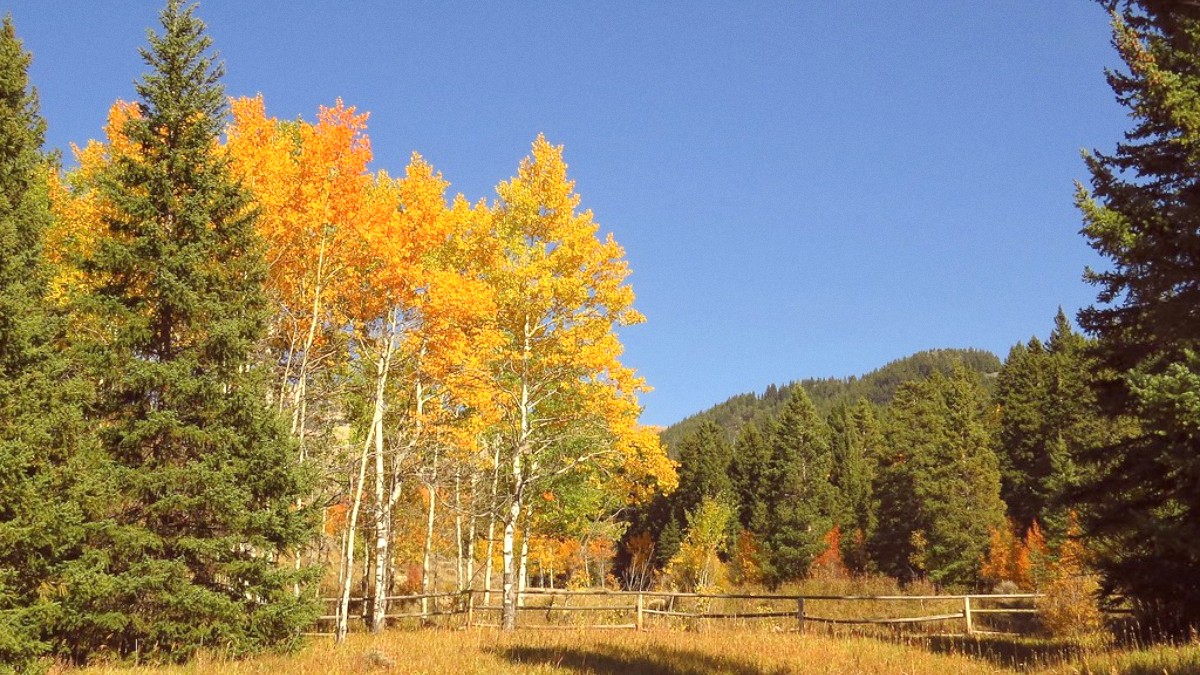
Wyoming, USA
The Bighorn Mountains region offers a range of lodging choices to suit different preferences and budgets, from deep wilderness immersion to comfortable town stays.
The Bighorn National Forest operates numerous developed campgrounds. These sites typically feature amenities like picnic tables, fire rings, and vault or flush toilets. Some have potable water. They offer an immersive experience directly within the forest. Reservations are highly recommended, especially during peak summer months, and can often be made through Recreation.gov.
Permitted in many areas within the Bighorn National Forest, dispersed camping means setting up camp outside designated campgrounds. It is free and offers solitude but has no facilities (no water, restrooms, or trash service). Strict adherence to Leave No Trace principles is mandatory.
Several privately owned lodges and cabins are located within or immediately adjacent to the Bighorn National Forest. Elk View Inn, Bear Lodge Resort, and various guest ranches like Paradise Guest Ranch or Spear-O-Wigwam Guest Ranch. These options range from rustic, cozy cabins to more comfortable, full-service resorts. They offer a closer connection to the mountain environment while having more amenities than camping.
Abundant in nearby gateway towns like Sheridan and Buffalo, hotels and motels range from budget-friendly chain properties to historic hotels and charming boutique options. These lodging choices have easy access to town amenities, restaurants, and shops.
Private vacation rentals are available in the surrounding towns and some rural areas. These frequently have more space, privacy, and amenities like full kitchens, suiting families, groups, or longer stays.
These are not common or formalized options for visitors in the Bighorn Mountains region. The local tourism industry focuses more on established lodging types.
Developed Campgrounds: Reservations for developed campgrounds are highly recommended during the peak summer season (July-August) as popular sites fill quickly. Many campgrounds on Recreation.gov open their booking windows up to six months in advance. Outside of peak season, sites are often available on a first-come, first-served basis. Fees typically range from $15 to $30 per night. Well-known Tie Flume Campground, Sibley Lake Campground, and Shell Creek Campground. These sites offer a structured camping experience with some facilities.
This free camping option suits those seeking true solitude and self-sufficiency. You must be prepared to carry in all your water and pack out all your trash. Observe fire restrictions carefully, and always choose a previously used, durable surface for your campsite. Consult the Forest Service for specific guidelines and any current restrictions in the area you plan to visit.
If you plan to camp in the Bighorns, especially during summer, secure your campground reservations early. Popular sites book up quickly.
If you plan to camp in the Bighorns, specifically during summer, secure your campground reservations early. Popular sites book up quickly.
Remember, dispersed camping means no facilities; plan for self-sufficiency. Always check current fire restrictions and Leave No Trace principles.
The Bighorn Mountains are a vast natural area, not structured with urban "neighborhoods." Accommodation choices are generally based on their proximity to specific access points, attractions, or the type of amenities you seek.
Choose your base town or camping area according to the Bighorn attractions and activities most important for your visit.
If you plan extensive hiking in the Cloud Peak Wilderness, a base near Buffalo or a campground on US-16 is suitable.
Consider combining accommodations if your trip is longer. Mix a few nights camping for nature immersion with a comfortable hotel in town for amenities.
Thoughtful booking strategies help secure your preferred accommodation and potentially save money.
Demand is highest. Book campgrounds (popular ones via Recreation.gov) and popular lodges or hotels in Sheridan and Buffalo several months in advance.
Shoulder Season (May-Early June, Late September-October): Hotels in towns are generally easier to find, but booking a few weeks in advance is still useful, especially for weekends.
Campgrounds: Use Recreation.gov for almost all developed campgrounds within the Bighorn National Forest.
Vacation Rentals: Airbnb and Vrbo are the main platforms for booking vacation homes or apartments.
Many have easy access to lakes for fishing or gentle trails, and open spaces for kids to play. Look for campgrounds with potable water and restrooms.
In nearby towns, these provide more space, separate bedrooms, and kitchen facilities, useful for families with children.
Often have structured activities for children and teens, allowing parents to enjoy other pursuits.
Vacation rentals suit extended stays, offering amenities like kitchens and laundry. Some campgrounds have limits on the maximum duration of stay; check Forest Service regulations.
These offer a sense of community and opportunities to meet other travelers, especially if you seek company.
They provide privacy, security, and convenient amenities after a day of exploring.
The Historic Sheridan Inn in Sheridan has a rich past, having hosted famous figures like Buffalo Bill Cody and Ernest Hemingway. Several guest ranches have long histories themselves, offering authentic Western experiences dating back generations.
Prices for hotels and lodges are generally highest during the peak summer season (July-August) due to demand. More affordable rates may be found during the shoulder seasons.
Developed Campgrounds: $15-30/night. Basic amenities, direct nature access. Dispersed Camping: Free. No amenities, calls for self-sufficiency.
Rustic Cabins/Lodges (Within/near Bighorn NF): $150-250/night. Examples: Bear Lodge Resort. Closer connection to nature with basic comforts.
Check individual property websites for accessibility features. Some older historic properties or rustic cabins may have limited accessibility.
Many accommodations, especially campgrounds and some cabins, are pet-friendly, but always confirm policies and any associated fees before booking.
Cell service can be spotty within the Bighorn National Forest. Many lodges offer Wi-Fi, but town hotels provide the most reliable internet access.